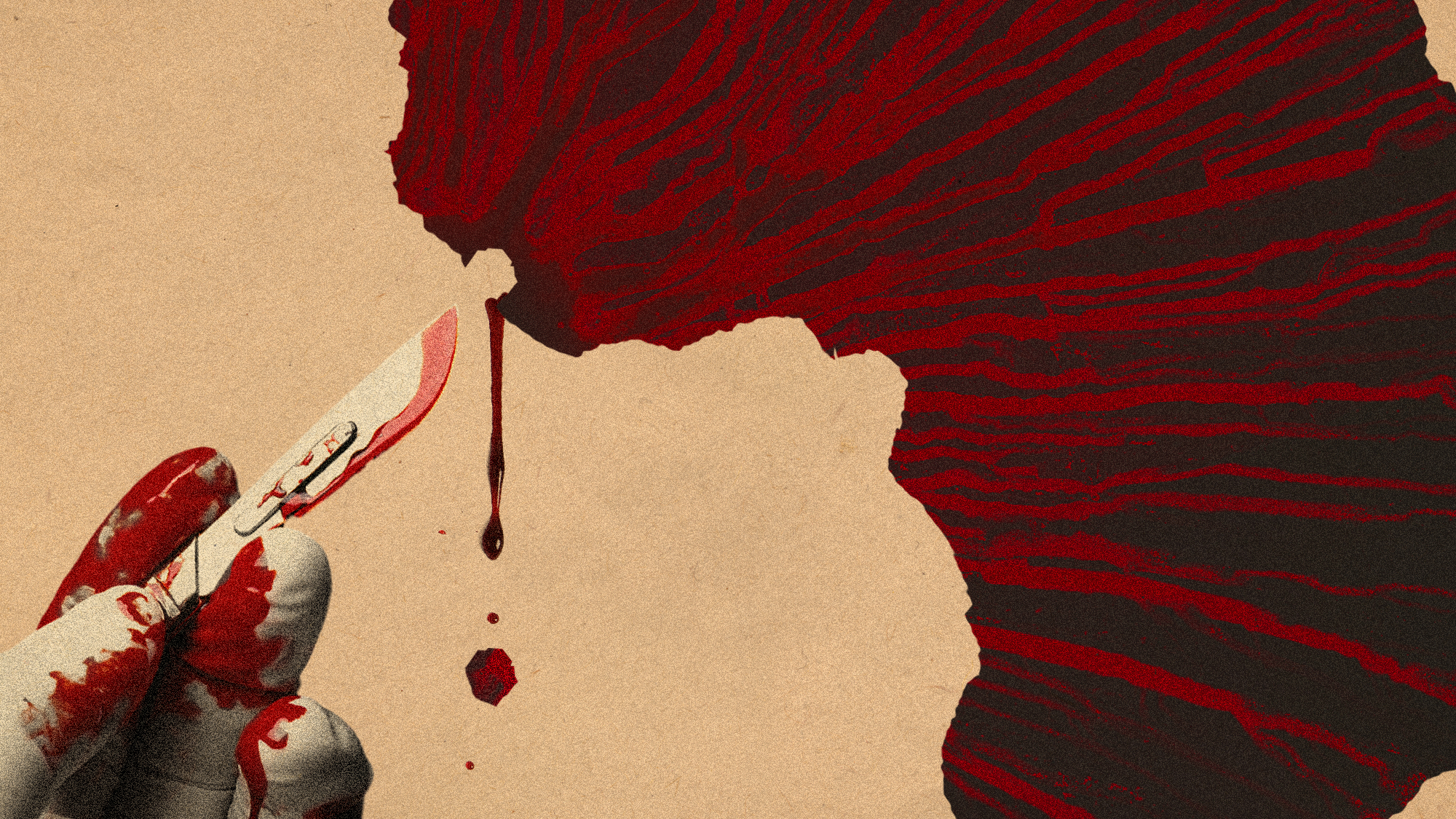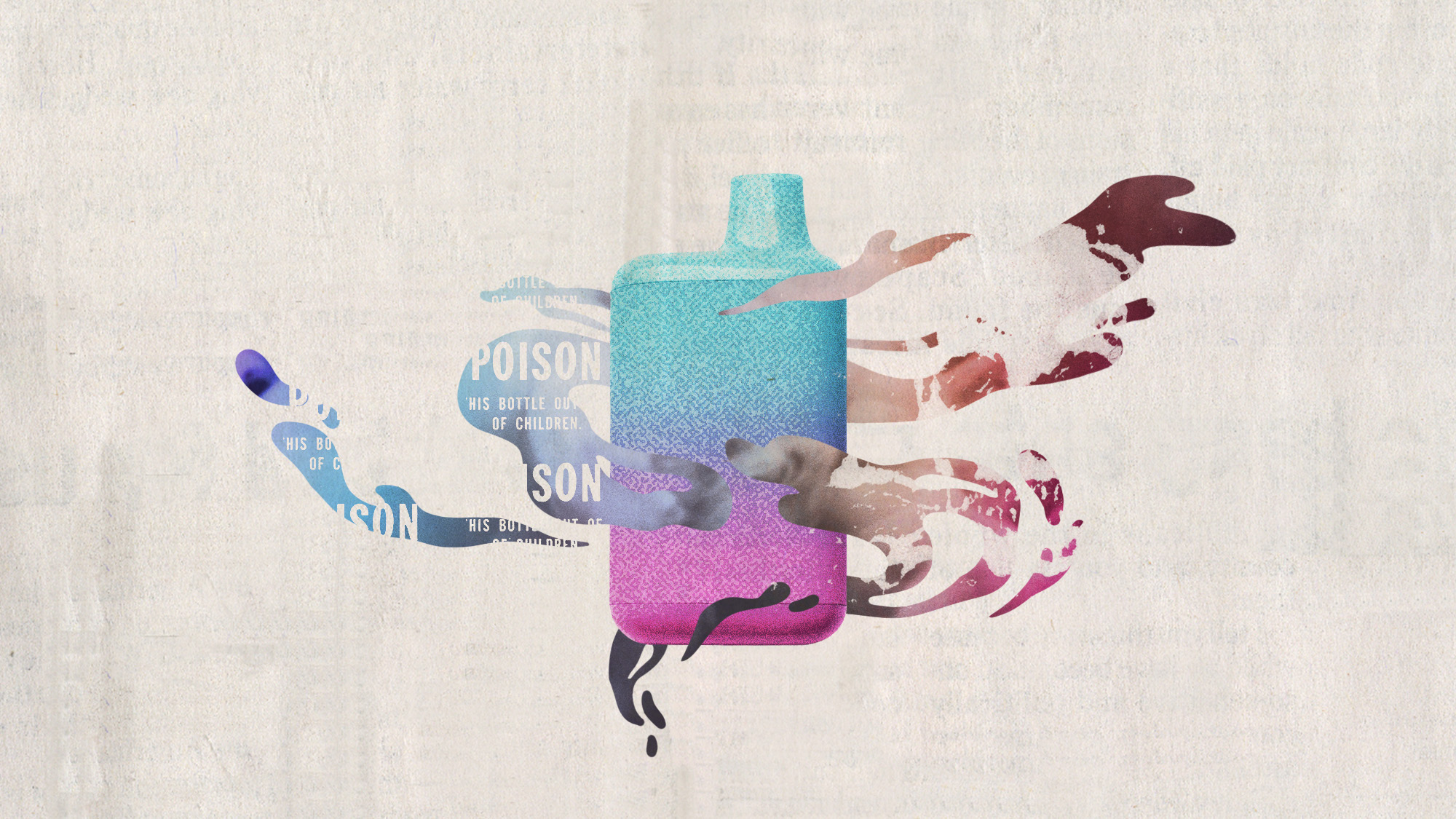Africa's renewed battle against female genital mutilation
Campaigners call for ban in Sierra Leone after deaths of three girls as coast-to-coast convoy prepares to depart

A free daily email with the biggest news stories of the day – and the best features from TheWeek.com
You are now subscribed
Your newsletter sign-up was successful
The deaths of three girls have reinvigorated efforts to ban female genital mutilation (FGM) in Sierra Leone, where the practice is still widespread despite global efforts to eradicate it.
Adamsay Sesay, 12, Salamatu Jalloh, 13, and Kadiatu Bangura, 17, died following traditional initiation ceremonies in the northwest Kambia District, local media reported last week. The girls' parents and the practitioners who cut them are in custody, according to the Forum Against Harmful Practices (FAHP), a coalition of organisations fighting to end FGM in the West African nation.
This week the World Health Organization (WHO) estimated that, despite decades of effort, more than 200 million girls and women alive today have undergone FGM in 30 countries – in Africa, the Middle East and Asia. Most African nations where FGM is prevalent have banned it, but despite calls from activists – and the UN Special Rapporteur on Violence against Women and Girls – it is still legal in Sierra Leone.
The Week
Escape your echo chamber. Get the facts behind the news, plus analysis from multiple perspectives.

Sign up for The Week's Free Newsletters
From our morning news briefing to a weekly Good News Newsletter, get the best of The Week delivered directly to your inbox.
From our morning news briefing to a weekly Good News Newsletter, get the best of The Week delivered directly to your inbox.
'Say yes to Bondo; say no to cutting'
FGM – removing all or part of the genitals for cultural or religious (non-medical) purposes – is "recognised internationally as a violation of the human rights of girls and women", said the WHO. Treatment for health complications, like bleeding, severe pain during sex, infection and childbirth issues, costs health systems around the world about $1.4 billion per year.
In 2015, Sierra Leone ratified international pledges to combat gender-based violence, including FGM, but has not criminalised it. About 83% of Sierra Leonean women aged 15 and over have undergone FGM, according to Unicef estimates from 2023, typically during an initiation rite into the all-women Bondo Society, which prepares girls for adulthood.
The procedure purports to "tame women's sexual desire", reported BBC Africa Eye. "An uncut woman loves sex more than a cut woman. That's why we reduce the urge in them," said one soweis, or senior member, of the Bondo Society.
It is impossible to know how many girls and young women die in Sierra Leone after undergoing FGM, reported CNN from Kambia District, as Bondo is "shrouded in secrecy, and silence is maintained through superstition and fear".
A free daily email with the biggest news stories of the day – and the best features from TheWeek.com
Bondo holds FGM "as a central pillar", said a 2017 report by Forward, an African organisation raising awareness of FGM. The "secrecy and taboo" prevents communities from tackling FGM, while poverty, gender discrimination and lack of education continue to promote Bondo "in its current form".
For soweis, FGM also "remains a significant source of income", said Aminata Koroma, executive secretary of FAHP. Families spend "hundreds of dollars" on the ceremony. "We have to be able to replace it with something else."
FAHP is lobbying for criminalisation, but also piloting FGM-free initiation ceremonies, called Alternative Rites or Bloodless Bondo.
"There are many positive aspects of the Bondo Society," Rugiatu Turay, FAHP chair and FGM survivor, told The Guardian. "They teach girls about medicinal properties of plants and pass down the history of our culture. Our slogan is, 'Say yes to Bondo, no to cutting.'"
The 'Born Perfect' caravan convoy
Despite continent-wide efforts, "high levels of support" for FGM persist in several African nations, said The Guardian. In Somalia, where cutting is viewed as a "religious requirement", about 98% of women have undergone FGM.
In June, thousands of survivors and activists will embark on a two-year caravan campaign across the continent to call for an end to the practice.
The coast-to-coast initiative, organised by #FrontlineEndingFGM, which brings together more than 1,000 grassroots campaigns, will cross 20 countries – covering about 7,400 miles. The convoy, called the Born Perfect caravan, will depart from Mauritania in the west and end in 2026 in Djibouti, East Africa.
The campaign is inspired by the "pink bus" anti-FGM movements that began in the Gambia a decade ago, said Caroline Kimeu, The Guardian's East Africa global development correspondent.
In each country, medical professionals and religious leaders will hold events and radio broadcasts "tailored to local challenges", while caravans will help "mobilise communities in hard-to-reach areas".
The initiative hopes to "re-energise anti-FGM advocacy across the continent, as threats – including a shift towards medicalised FGM in the Horn of Africa, and underground practices – threaten to undo progress".
Harriet Marsden is a senior staff writer and podcast panellist for The Week, covering world news and writing the weekly Global Digest newsletter. Before joining the site in 2023, she was a freelance journalist for seven years, working for The Guardian, The Times and The Independent among others, and regularly appearing on radio shows. In 2021, she was awarded the “journalist-at-large” fellowship by the Local Trust charity, and spent a year travelling independently to some of England’s most deprived areas to write about community activism. She has a master’s in international journalism from City University, and has also worked in Bolivia, Colombia and Spain.
-
 Bad Bunny’s Super Bowl: A win for unity
Bad Bunny’s Super Bowl: A win for unityFeature The global superstar's halftime show was a celebration for everyone to enjoy
-
 Book reviews: ‘Bonfire of the Murdochs’ and ‘The Typewriter and the Guillotine’
Book reviews: ‘Bonfire of the Murdochs’ and ‘The Typewriter and the Guillotine’Feature New insights into the Murdoch family’s turmoil and a renowned journalist’s time in pre-World War II Paris
-
 Witkoff and Kushner tackle Ukraine, Iran in Geneva
Witkoff and Kushner tackle Ukraine, Iran in GenevaSpeed Read Steve Witkoff and Jared Kushner held negotiations aimed at securing a nuclear deal with Iran and an end to Russia’s war in Ukraine
-
 Epstein files topple law CEO, roil UK government
Epstein files topple law CEO, roil UK governmentSpeed Read Peter Mandelson, Britain’s former ambassador to the US, is caught up in the scandal
-
 Mexico’s vape ban has led to a cartel-controlled black market
Mexico’s vape ban has led to a cartel-controlled black marketUnder the Radar Cartels have expanded their power over the sale of illicit tobacco
-
 Iran and US prepare to meet after skirmishes
Iran and US prepare to meet after skirmishesSpeed Read The incident comes amid heightened tensions in the Middle East
-
 Israel retrieves final hostage’s body from Gaza
Israel retrieves final hostage’s body from GazaSpeed Read The 24-year-old police officer was killed during the initial Hamas attack
-
 China’s Xi targets top general in growing purge
China’s Xi targets top general in growing purgeSpeed Read Zhang Youxia is being investigated over ‘grave violations’ of the law
-
 Panama and Canada are negotiating over a crucial copper mine
Panama and Canada are negotiating over a crucial copper mineIn the Spotlight Panama is set to make a final decision on the mine this summer
-
 Why Greenland’s natural resources are nearly impossible to mine
Why Greenland’s natural resources are nearly impossible to mineThe Explainer The country’s natural landscape makes the task extremely difficult
-
 Iran cuts internet as protests escalate
Iran cuts internet as protests escalateSpeed Reada Government buildings across the country have been set on fire